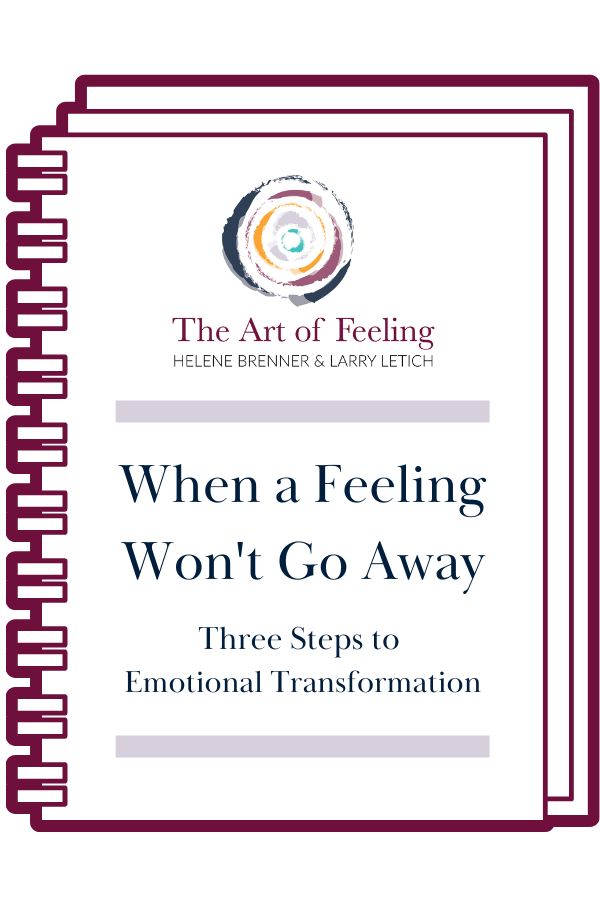Has something like this ever happened to you?
You’re having what you thought was a casual conversation about possibly buying a house in the suburbs in a year or two when your husband suddenly hisses, “Oh, why are we even married?”
Or. . .
You’re running late to a wedding. As you pull out of the driveway, your wife says, “Did you have to talk so long on the phone with your mother?” – even though she took 10 minutes longer than you to get out the door. The tension is thick on the ensuing drive and, in your nervousness, you make an (easily reversible) wrong turn. “Can’t you follow a GPS?” snaps the woman you’re married to.
In the moments following, you have some choices:
- You could give them a real piece of your mind. You could say something equally nasty, even nastier. You could tell them it sure isn’t your fault, and who the hell are they to be blaming you!
- You could tell them that it’s absolutely unacceptable how they’re treating you. You can give them the cold shoulder – even the silent treatment – for minutes, hours, even days. That’ll teach them!
- You could act like they committed a crime. You could demand that they apologize profusely before you talk to them again.
- You could decide you want a divorce.
These are all perfectly understandable and very human reactions to being wrongly and unjustly treated. After all, you are so totally right at this moment and your partner is wrong. The only problem is that any of these ways of responding, as you probably already know, will most likely make a bad situation many times worse.
People are flawed. Though we shouldn’t be at our worst with our spouses, sometimes we are. In the early days of a relationship, which may last a few years, some couples can iron out their differences calmly and fairly easily. (And boy, can they be smug about it!)
But put a few more miles, years, and maybe kids into a relationship, and one day you may notice that when the shit hits the fan, it splatters in all directions. Add a crisis, a job loss, a medical condition or two, and you may find that you’re closer and stronger together than you ever were – except when you’re not. And then, oh well….
On the other hand, you and your partner may never get like this. It horrifies you even to think of it. We’ve been told by reliable sources that Midwesterners would rather die than get visibly upset. And Southern Californians, well, they’re always sunny.
But there’s a danger to always being “good” with your spouse. Your emotional self, and your spouse’s, aren’t always good. Decades of being always good instead of being authentic with the person who shares your life has an impact sooner or later. When your normally sane partner goes bonkers on you, it’s not pleasant, but at least you can feel confident they’re still emotionally connected to you.
Is this permission for you or your partner to be nasty, to totally let go, to express yourself any way you feel anytime you feel like it without caring one bit how it affects your partner? Absolutely not! We are always responsible for our own behavior. Let’s be clear: Nobody should put up with a partner who goes for the jugular at the slightest provocation, whether it’s as an overreaction to feeling hurt or to maintain an advantage in the relationship by keeping you, their partner, off-balance.
But in our therapy practices, we often see two different kinds of people: those who let their partners get away with everything, and those who let their partners get away with nothing. Both stances, as opposite as they are, do not represent true connection.
So what do you do when your partner acts like the ones at the beginning of this article?
First, take a deep breath and calm yourself down inside. Something has overloaded your partner’s emotional system. Right now you have about as much chance of getting them to be rational with you as you’d have of getting someone who’s dropped an anvil on their foot to recite the Pledge of Allegiance.
Next, based on everything you know about them, ask yourself, “What’s the story behind this? What are they so terrified of?” Because these kinds of sudden aggressive remarks are almost always a reaction to terror, even panic. Contrary to how it might look, they haven’t become a monster; they are seeing a monster, though they’re probably not fully aware of it.
The husband in the first example may be terrified of buying a house due to the added expense and commitment, or of feeling trapped in some awful suburban cul-de-sac, or of losing his circle of nearby friends. He may be terrified as well that he must agree to move or you’ll be angry at him and unhappy.
The wife in the second example may be terrified of being shamed for being late. She already feels pierced by barbed comments slung at her. It doesn’t matter if that will happen or not; she feels like it will. Shame is an extremely painful emotion, and on this day that feeling is unbearably strong, for reasons you may or may not know.
And to make matters even worse, people in this activated state have forgotten for the moment that you, their spouse, are on their side and can help them.
Some people with severe anxiety do indeed become overly harsh, aggressive and controlling when they get anxious. Biologically this makes sense. Anxiety, on the physiological level, is simply fear. It’s feeling unsafe and threatened. Throughout the animal kingdom, small creatures encountering a much larger predator get meaner, nastier and scarier in the hope of deterring the predator from attacking. It’s a matter of sheer survival.
But when this survival mechanism gets activated repeatedly in an intimate relationship, it can corrode that relationship and may need to be addressed in therapy.
But let’s say you have a partner or spouse who’s acting like this, and there’s no therapist in the back seat of the car to help. After calming yourself down and asking yourself what they might be so scared of, it might be helpful to remind yourself that this is the person you love who’s acting hurtfully right now. The answer is rarely if ever to reprimand them to make them see the error of their ways. It’s to make them somehow feel safer, less threatened and more secure.
This can be tricky to do. You can’t confront their fear directly, because your partner is likely to deny being scared at all. Trying to reassure them that there’s nothing to be worried about, as well-intentioned as that might be, might come across as dismissive and hurtful and could make things even worse.
But simply recognizing the fear and sense of threat behind the snappish remark, not responding in kind, and responding both verbally and non-verbally with compassion can make all the difference. It can be as simple as gently reaching to hold your partner’s hand.
Later, you may want to tell your partner clearly and firmly that they don’t have to get angry and harsh when they feel unsafe or in trouble; they can simply ask for comfort. Depending on their life history, however, it may be a long time before that message sinks in.
You may be thinking, “Doesn’t this encourage my partner’s bad behavior?” The answer is, “It depends.” Are you constantly soothing an angry partner who thinks you’re never doing enough? That’s a different, and more difficult, problem, one that can be exacerbated by a loving and caring response. If you’re in that situation, consider finding a therapist for you to talk to about what you’re going through.
But in a relationship that’s mostly good, where both partners give to each other most of the time, the best way to respond to a spouse who’s become a fire-eating dragon is not more fire, or to tell them to sit in the corner until they learn to be good. The right response is far braver and more challenging: Restraining your impulse to fight back, and responding instead with calm, compassion, kindness, and love.


 We’re Helene Brenner and Larry Letich. Helene is a licensed psychologist in private practice for more than 30 years. Larry is an individual and couples therapist. Besides being therapists, we’re co-authors and partners in life and love for more than four decades.
We’re Helene Brenner and Larry Letich. Helene is a licensed psychologist in private practice for more than 30 years. Larry is an individual and couples therapist. Besides being therapists, we’re co-authors and partners in life and love for more than four decades. 

0 Comments